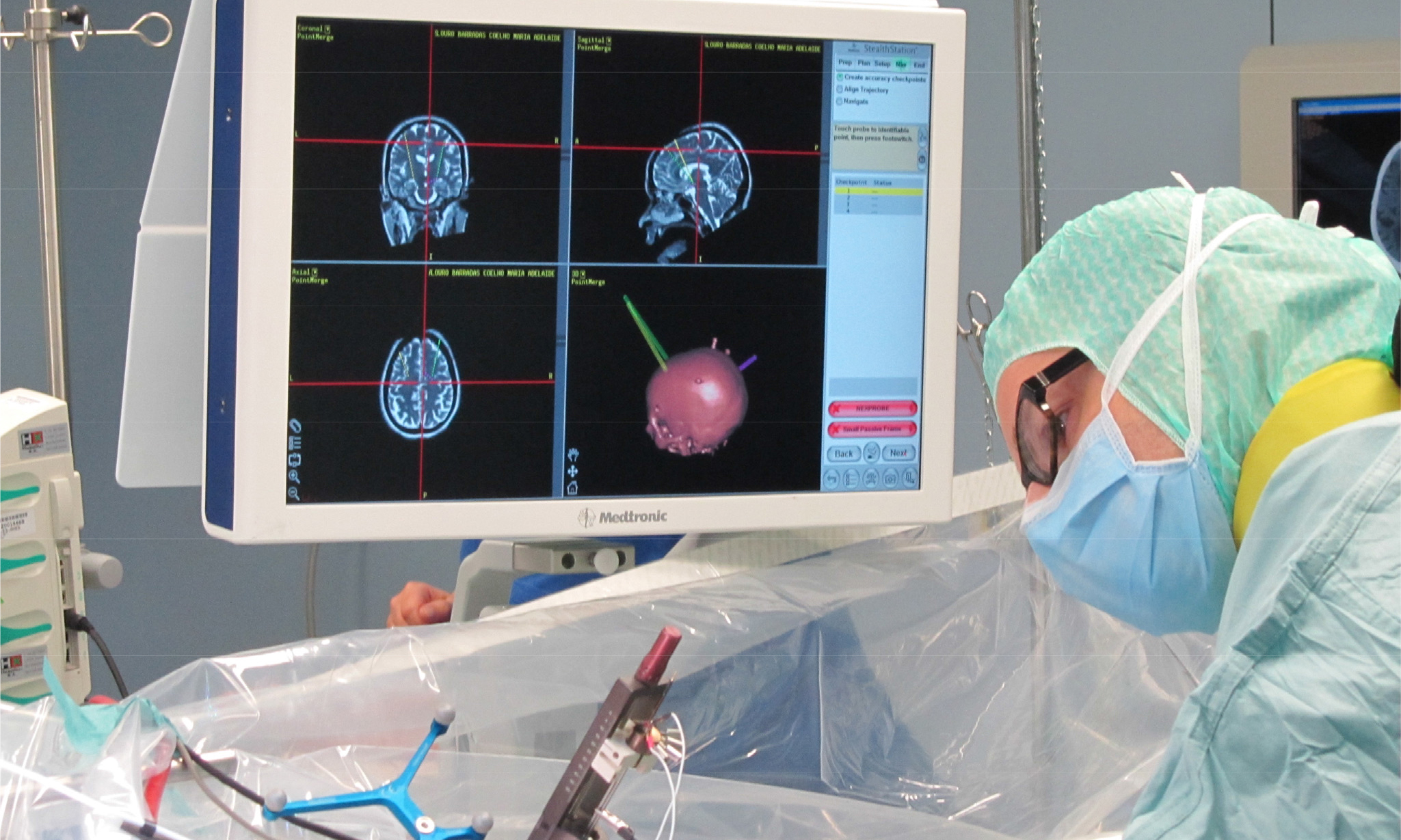A clinical study at the Centre Hospitalier de Luxembourg (CHL) is testing new combined deep brain simulation (DBS) to counteract gait blocks.
Neuroscientists have recently developed a new "combined DBS" that should improve blocks which, up to now, have proven extremely difficult to remedy in Parkinson's patients. A multi-centre study currently being conducted at CHL (among other centres) is examining this innovative procedure designed to counteract gait freezing.
Gait freezing typically occurs in the advanced stages of Parkinson's disease and effects around 60 to 80 per cent of all patients. Up to now, doctors have not been able to treat freezing effectively using traditional medication or typical brain simulation (TBS). This has increasingly led to an impaired quality of life, including dangerous falls, among those affected. Therefore, a new therapy to counteract such blocks is extremely important.
A pilot study using "combined brain simulation" on 12 patients conducted at Tübingen University in 2013 reported an improvement in gait freezing of around 40 per cent compared with the best possible therapies applied hitherto. After three weeks, the quality of life of those involved started to improve slightly owing to improved mobility.
A clinical study is currently examining a new method to counteract gait blocks – CHL is involved
A new multi-centre study on which renowned Parkinson's research centres from Tübingen, Munich, Hamburg, Leipzig, Regensburg and Luxembourg are working closely together is now set to examine the results of the pilot study. Professor Dr med. Rejko Krüger, a neurologist at CHL and head of the research group at the
Luxembourg Centre for Systems Biomedicine (LCSB) at the University of Luxembourg, outlined some of the main features of this new therapy option: "Up to now, we've shown that a small group of patients can benefit significantly from the new therapy. Now, for this to gain currency in general therapy recommendations, we have to confirm during our next step that this promising result can be repeated among patients at various sites in Germany and Luxembourg." The current study therefore includes a total of 54 Parkinson's patients suffering gait blocks. The parallel group plan is for half the trial patients to undergo the combined brain simulation therapy, while the other half are treated with the best-possible traditional form of therapy. In this way, it should be proven that the new form of therapy is superior.
Study points the way for the future treatment of Parkinson's patients suffering gait blocks
"The results of this study are extremely important for us. They are groundbreaking for the future DBS treatment of Parkinson's patients suffering gait blocks, for which we do not currently have satisfactory forms of therapy", explained Dr Frank Hertel, a neurosurgeon at CHL and Head of the Centre for Deep Brain Simulation in Luxembourg: "Although TBS has been a very effective form of therapy for some time, we can see the potential for further improvement for our patients." Therefore, the two doctors are conducting research, together with the LCSB and the Trier University of Applied Sciences, in order to secure further improvements. In this way, they will be able to offer their patients the best-possible therapy in line with state-of-the-art research. In the coming years, it will be a matter of pursuing these new research approaches.
Key for Luxembourg and its patients
According to Dr Krüger, the National Centre for Excellence in Research on Parkinson's Disease (NCER-PD) has in the interim acquired an impeccable reputation worldwide and, as a result, Luxembourg researchers into Parkinson's disease are increasingly becoming involved in top-level international studies.
"This is one of the key aims of our work, as patients in Luxembourg should benefit as directly as possible from the research initiatives. As an example, seven Luxembourg patients are involved in the current randomised clinical study," he stated in underlining the importance for Luxembourg: "Using new therapy concepts, we can therefore ensure that our other patients reap the rewards of these study results as quickly as possible."





